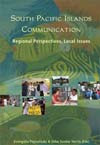
I live in a
rumah kos, student accommodation that resembles a motor lodge back home with rows of rooms. My neighbours are mostly Indonesian students, generally well off, because from what I'm told this is an expensive place at 1.5 million rupiah a month - about NZ$200. Amazingly cheap by Auckland standards. To get to the kos you have to negotiate the maze of alley sized streets that make up the local
kampung, village.
Just down the street is a place we refer to as a sweatshop. A small metal door that leads off the alley shows a small cramped room about 5m by 5m filled with desk and sewing mach

ines, always humming. Every morning when we wander past we get followed by friendly
salamat pagis that carry on even when we are long gone, in the evening its
salamat malams. A friend that works for the
Jakarta Post interviewed a few of the friendly workers one day and this is what she found. First of all it is a legitimate, to a point anyway, factory and the people are, as it seemed, happy. Unfortunately it is one of the many workplaces in the informal sector, meaning it doesn't fall under labour laws, although at least the people have jobs in a nation with soaring unemployment where 70% of people work in the informal sector.
The girl she talked to, through an interpreter, is one of the millions who have moved from the country to Jakarta in a hugely centralised country. The 20-year-old moved in with her husband last year to try and make money. She now lives above the factory for free, a huge bonus, and shares a room with her husband while the others sleep five to a room.
The young Indonesian girl works a whopping 14 hours a day, 6 days a week. For this huge week she earns a meager Rp 200,000, about NZ$30, sowing beautiful rainbow coloured nightgowns for export to UAE, Malaysia and Australia.
During an average day she get breaks from 12-1, 3-4, 6-7 (for prayers and eating) and in her small amount of spare time she sleeps and rests or wanders to the local mall.
She lives on the Asian staple of
nasi, rice, which costs about Rp3000 a meal. Currently her life exists of little more than the cramped factory and whatever she can reach by walking in any time off that she is not sleeping in. What I see as the biggest shame about her story is that she almost had the chance to live a better life - she studied English for three semesters at university, usually a ticket to better pay, but couldn't afford to continue.
And she is well off compared to many here. How lucky we are.
Photos: Our local sweatshop, and one of the guys working on the beautiful nightgowns.
Dylan Quinnel
Jakarta
Dylan's YouTube video post Suharto's death
 Mr Singh lodged a complaint with the Fiji Media Council claiming that the Daily Post had failed to publish a letter that he had forwarded to the editor. The Media Council rejected the complaint as it is well established that editors have sole discretion in deciding which letters are published. Had Mr Singh lodged a complaint regarding the contents of an editorial or a published item then his complaint would have been dealt with in the normal way through our complaint procedure.
Mr Singh lodged a complaint with the Fiji Media Council claiming that the Daily Post had failed to publish a letter that he had forwarded to the editor. The Media Council rejected the complaint as it is well established that editors have sole discretion in deciding which letters are published. Had Mr Singh lodged a complaint regarding the contents of an editorial or a published item then his complaint would have been dealt with in the normal way through our complaint procedure.












 Hi guys, The journo gang all went away for the weekend to a beachside town. Offshore is a volcano, Krakatoa, which erupted in 1874, creating a tidal wave that killed people as far as 200km in land and sent ash 2000km away. We created a huge stir when a bus load of bule foreigners turned up and after some hard bargaining and a 2v2 soccer game against some local guys (which me and an Aussie mate from Tassie lost 3-0), we bumped out the volcano on a fleet of 4 speedboats, took a 1.5 hours but was good fun.
Hi guys, The journo gang all went away for the weekend to a beachside town. Offshore is a volcano, Krakatoa, which erupted in 1874, creating a tidal wave that killed people as far as 200km in land and sent ash 2000km away. We created a huge stir when a bus load of bule foreigners turned up and after some hard bargaining and a 2v2 soccer game against some local guys (which me and an Aussie mate from Tassie lost 3-0), we bumped out the volcano on a fleet of 4 speedboats, took a 1.5 hours but was good fun. 





















